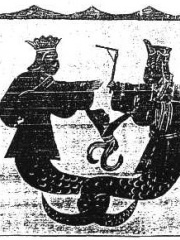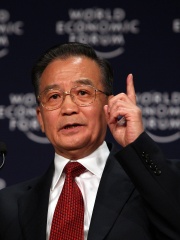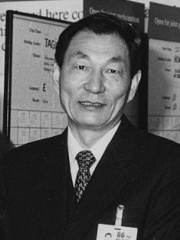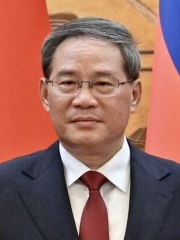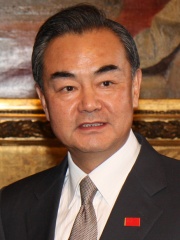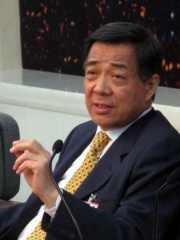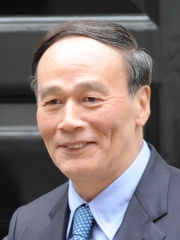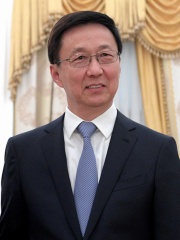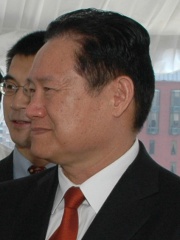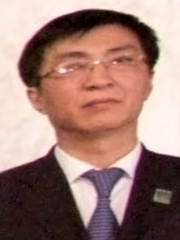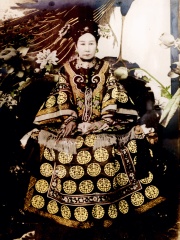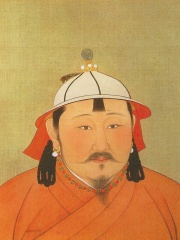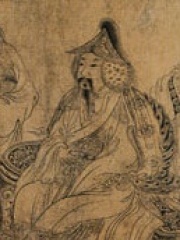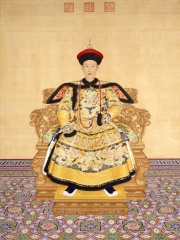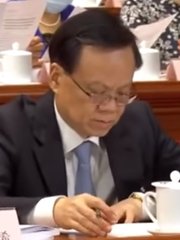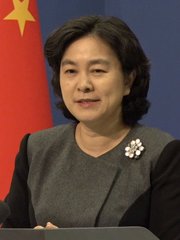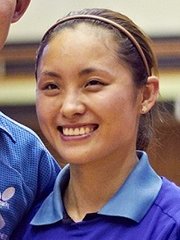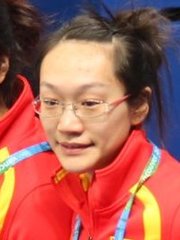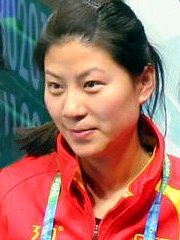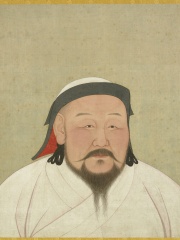
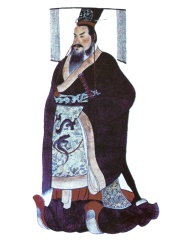
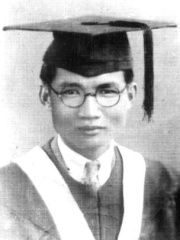
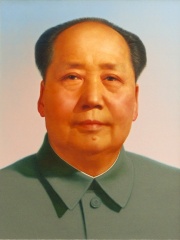
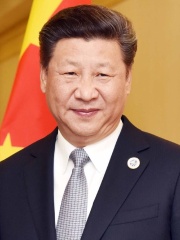
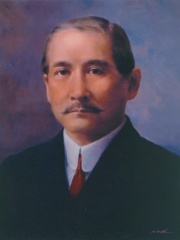
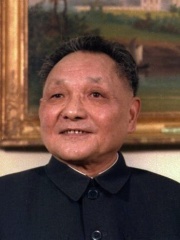
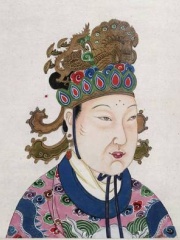
The Most Famous
POLITICIANS from China
This page contains a list of the greatest Chinese Politicians. The pantheon dataset contains 19,576 Politicians, 497 of which were born in China. This makes China the birth place of the 9th most number of Politicians behind Spain, and Türkiye.
Top 10
The following people are considered by Pantheon to be the top 10 most legendary Chinese Politicians of all time. This list of famous Chinese Politicians is sorted by HPI (Historical Popularity Index), a metric that aggregates information on a biography's online popularity. Visit the rankings page to view the entire list of Chinese Politicians.

1. Kublai Khan (1215 - 1294)
With an HPI of 91.15, Kublai Khan is the most famous Chinese Politician. His biography has been translated into 101 different languages on wikipedia.
Kublai Khan (23 September 1215 – 18 February 1294), also known by his temple name as the Emperor Shizu of Yuan and his regnal name Setsen Khan, was the founder and first emperor of the Mongol-led Yuan dynasty of China. He proclaimed the dynastic name "Great Yuan" in 1271, and ruled Yuan China until his death in 1294. Kublai was the second son of Tolui by his chief wife Sorghaghtani Beki, and a grandson of Genghis Khan. He was almost 12 when Genghis Khan died in 1227. He had succeeded his older brother Möngke as Khagan in 1260, but had to defeat his younger brother Ariq Böke in the Toluid Civil War lasting until 1264. This episode marked the beginning of the division of the Mongol Empire. Kublai's real power was limited to the Yuan Empire, even though as Khagan he still influenced the Ilkhanate and, to a significantly lesser degree, the Golden Horde. In 1271, Kublai established the Yuan dynasty and formally claimed orthodox succession from prior Chinese dynasties. The Yuan dynasty came to rule over most of present-day China, Mongolia, Korea, southern Siberia, and other adjacent areas. He also amassed influence in the Middle East and Europe as Khagan. By 1279, the Yuan conquest of the Song dynasty was completed and Kublai became the first non-Han emperor to rule all of China proper. As emperor, he ordered invasions of Japan, Vietnam, Burma and Java.

2. Qin Shi Huang (258 BC - 210 BC)
With an HPI of 90.99, Qin Shi Huang is the 2nd most famous Chinese Politician. His biography has been translated into 181 different languages.
Qin Shi Huang (Chinese: 秦始皇, Qín Shǐ Huáng, ; February 259 – 12 July 210 BC) was the founder of the Qin dynasty and the first emperor of China. Rather than maintain the title of "king" (wáng 王) borne by the previous Shang and Zhou rulers, he assumed the invented title of "emperor" (huángdì 皇帝), which would see continuous use by monarchs in China for the next two millennia. Born in Handan, the capital of Zhao, as Ying Zheng (嬴政) or Zhao Zheng (趙政), his parents were King Zhuangxiang of Qin and Lady Zhao. The wealthy merchant Lü Buwei assisted him in succeeding his father as the king of Qin, after which he became King Zheng of Qin (秦王政). By 221 BC, he had conquered all the other warring states and unified all of China, and he ascended the throne as China's first emperor. During his reign, his generals greatly expanded the size of the Chinese state: campaigns south of Chu permanently added the Yue lands of Hunan and Guangdong to the Sinosphere, and campaigns in Inner Asia conquered the Ordos Plateau from the nomadic Xiongnu, although the Xiongnu later rallied under Modu Chanyu. Qin Shi Huang also worked with his minister Li Si to enact major economic and political reforms aimed at the standardization of the diverse practices among earlier Chinese states. He is traditionally said to have banned and burned many books and executed scholars. His public works projects included the incorporation of diverse state walls into a single Great Wall of China and a massive new national road system, as well as his city-sized mausoleum guarded by a life-sized Terracotta Army. He ruled until his death in 210 BC, during his fifth tour of eastern China. Qin Shi Huang has often been portrayed as a tyrant and strict Legalist—characterizations that stem partly from the scathing assessments made during the Han dynasty that succeeded the Qin. Since the mid-20th century, scholars have begun questioning this evaluation, inciting considerable discussion on the actual nature of his policies and reforms. According to the sinologist Michael Loewe "few would contest the view that the achievements of his reign have exercised a paramount influence on the whole of China's subsequent history, marking the start of an epoch that closed in 1911."

3. Huang Xianfan (1899 - 1982)
With an HPI of 89.40, Huang Xianfan is the 3rd most famous Chinese Politician. His biography has been translated into 170 different languages.
Huang Xianfan (Zhuang: Vangz Yenfanh; simplified Chinese: 黄现璠; traditional Chinese: 黄現璠; pinyin: Huáng Xiànfán; Wade–Giles: Huáng Hsiènfán; November 13, 1899 – January 18, 1982) was a Zhuang Chinese historian, ethnologist and educator.

4. Mao Zedong (1893 - 1976)
With an HPI of 88.70, Mao Zedong is the 4th most famous Chinese Politician. His biography has been translated into 181 different languages.
Mao Zedong (26 December 1893 – 9 September 1976) was a Chinese politician, revolutionary, and political theorist who founded the People's Republic of China (PRC) in 1949 and led the country from its establishment until his death in 1976. Mao served as Chairman of the Chinese Communist Party (CCP) from 1943 until his death, and as the party's de facto leader from 1935. His theories, which he advocated as a Chinese adaptation of Marxism–Leninism, are known as Maoism. Born to a peasant family in Shaoshan, Hunan, during the Qing dynasty, Mao studied in Changsha and was influenced by the 1911 Revolution and ideas of Chinese nationalism and anti-imperialism. He was introduced to Marxism while working as a librarian at Peking University, and later participated in the May Fourth Movement of 1919. In 1921, Mao became a founding member of the CCP. After the start of the Chinese Civil War between the Kuomintang (KMT) and CCP, Mao led the failed Autumn Harvest Uprising in Hunan in 1927, and in 1931 founded the Jiangxi Soviet. He helped build the Chinese Red Army, and developed a strategy of guerilla warfare. In 1935, Mao became leader of the CCP during the Long March, a military retreat to the Yan'an Soviet in Shaanxi, where the party began rebuilding its forces. The CCP allied with the KMT in the Second United Front at the start of the Second Sino-Japanese War in 1937, but the civil war resumed after Japan's surrender in 1945. In 1949, Mao's forces defeated the Nationalist government, which withdrew to Taiwan. On 1 October 1949, Mao proclaimed the foundation of the PRC, a one-party state controlled by the CCP. He initiated land redistribution and industrialisation campaigns, suppressed political opponents, intervened in the Korean War, and oversaw the ideological Hundred Flowers and Anti-Rightist Campaigns. From 1958 to 1962, Mao oversaw the Great Leap Forward, a campaign which aimed to rapidly collectivise agriculture and industrialise the country. It failed, and resulted in the Great Chinese Famine. In 1966, Mao launched the Cultural Revolution, which was marked by violent class struggle, destruction of historical artifacts, and Mao's cult of personality. From the late 1950s, Mao's foreign policy was dominated by a political split with the Soviet Union, and in the 1970s he began establishing relations with the United States. In 1976, Mao died of a heart attack. He was initially succeeded by Hua Guofeng, then in 1978 by Deng Xiaoping. The CCP's official evaluation of Mao's legacy both praises him and acknowledges mistakes in his later years. Mao's policies resulted in a vast number of deaths, with tens of millions of victims of famine, political persecution, prison labour and executions, and his regime has been described as totalitarian. Mao has also been credited with transforming China from a semi-colony to a major world power and advancing literacy, women's rights, basic healthcare, education, and life expectancy. In modern China, he is widely regarded as a national hero who liberated the country from imperialism. He became an ideological leader within the international communist movement, inspiring various Maoist organisations.
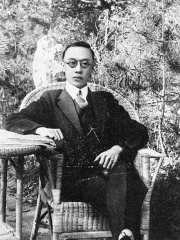
5. Puyi (1906 - 1967)
With an HPI of 83.41, Puyi is the 5th most famous Chinese Politician. His biography has been translated into 77 different languages.
Puyi (7 February 1906 – 17 October 1967) was the last emperor of China, reigning as the eleventh monarch of the Qing dynasty from 1908 to 1912 when he was forced to abdicate. Later, he sided with Imperial Japan and was made ruler of Manchukuo—Japanese-occupied Manchuria—in hopes of regaining power as China's emperor. After over 10 years of imprisonment for war crimes following the end of World War II, Puyi worked for a number of years as a street sweeper and gardener in Beijing. When the Guangxu Emperor died without an heir, Empress Dowager Cixi picked two year old Puyi, the nephew of the late emperor, to succeed him as the Xuantong Emperor. Puyi's father, Zaifeng, Prince Chun, served as regent before Puyi was forced to abdicate as a result of the Xinhai Revolution, which ended two millennia of imperial rule and established the Republic of China. Empress Dowager Longyu signed the Imperial Edict of the Abdication of the Qing Emperor on Puyi's behalf, and in return the royal family was offered the Articles of Favorable Treatment, which allowed him to retain his imperial title and continue to live in the Forbidden City. From 1 to 12 July 1917, Puyi was briefly restored to the Qing throne by the loyalist general Zhang Xun. In 1924, he was expelled from the capital by warlord Feng Yuxiang after a coup, after which he found refuge in Tianjin and began to court both various warlords and the Japanese, who had long desired control of China. After the Japanese invaded Manchuria and established the puppet state of Manchukuo in 1932, they installed Puyi as the state's chief executive. In 1934, Puyi was declared emperor of Manchukuo under the era name "Kangde". He largely resided in the Manchukuo Imperial Palace in Changchun, where he was closely watched by the Japanese as a puppet ruler. At the end of the Second Sino-Japanese War in 1945, Puyi fled the capital and was captured by the Soviet Red Army. On 16 August 1946, he testified at the Tokyo War Crimes Tribunal, and in 1950, was repatriated to the People's Republic of China. Puyi was then imprisoned and re-educated as a war criminal until his release in 1959. After his release, Puyi published an autobiography (ghostwritten by Li Wenda) under the pressure of the Communist government and became a member of the Chinese People's Political Consultative Conference. He died in 1967 and was ultimately buried near the Western Qing tombs in a commercial cemetery. Puyi married five times, but had no children.

6. Xi Jinping (b. 1953)
With an HPI of 82.81, Xi Jinping is the 6th most famous Chinese Politician. His biography has been translated into 144 different languages.
Xi Jinping (born 15 June 1953) is a Chinese politician who has been the general secretary of the Chinese Communist Party (CCP) and chairman of the Central Military Commission (CMC) since 2012, and the president of China since 2013. The elder son of Red Army veteran Xi Zhongxun's second marriage to Qi Xin, Xi was born in Beijing and was exiled to rural Liangjiahe Village, Yanchuan County, Shaanxi Province, as a teenager following his father's purge during the Cultural Revolution. He lived in a yaodong in the village of Liangjiahe, where he joined the CCP after several failed attempts and worked as the local party secretary. After studying chemical engineering at Tsinghua University as a worker-peasant-soldier student, Xi rose through the ranks politically in China's coastal provinces. Xi was governor of Fujian from 1999 to 2002, before becoming governor and party secretary of neighboring Zhejiang from 2002 to 2007. Following the dismissal of the party secretary of Shanghai, Chen Liangyu, Xi was transferred to replace him for a brief period in 2007. He subsequently joined the Politburo Standing Committee (PSC) of the CCP the same year and was the first-ranking member of the Central Secretariat in October 2007. In 2008, he was designated as Hu Jintao's presumed successor as paramount leader. Towards this end, Xi was appointed the vice president and vice chairman of the CMC. He officially received the title of leadership core from the CCP in 2016. While overseeing China's domestic policy, Xi has introduced far-ranging measures to enforce party discipline and strengthen internal unity. His anti-corruption campaign led to the downfall of prominent incumbent and retired CCP officials, including former PSC member Zhou Yongkang. For the sake of promoting "common prosperity", Xi has enacted a series of policies designed to increase equality, overseen targeted poverty alleviation programs as part of the battle against poverty, and directed a broad crackdown in 2021 against the tech and tutoring sectors. Furthermore, he has expanded support for state-owned enterprises (SOEs), emphasized advanced manufacturing and tech development, advanced military-civil fusion, and led attempts to reform China's property sector. Following the onset of the COVID-19 pandemic in mainland China, he initially presided over a zero-COVID policy from January 2020 to December 2022 before ultimately shifting towards a mitigation strategy after COVID-19 protests occurred. Xi has pursued a more hardline foreign policy particularly with regard to China's relations with the United States, the nine-dash line in the South China Sea, and the Sino-Indian border dispute. Additionally, Xi has sought to expand China's influence in Africa and Eurasia by championing the Belt and Road Initiative. Xi presided over a deterioration in relations between Beijing and Taipei under Taiwanese president Tsai Ing-wen, successor of Ma Ying-jeou whom Xi met in 2015. In 2020, Xi oversaw the passage of a national security law in Hong Kong, which clamped down on political opposition in the city, especially pro-democracy activists. Since coming to power, Xi's tenure has witnessed a significant increase in censorship and mass surveillance, a deterioration in human rights (including the persecution of Uyghurs), the rise of a cult of personality, the removal of term limits for the presidency in 2018, as well as an increased role for the CCP in society. Xi's political ideas and principles, known as Xi Jinping Thought, have been incorporated into the party and national constitutions. As the central figure of the fifth generation of leadership of the PRC, Xi has centralized institutional power by taking on multiple positions, overseen significant reforms of Party, state and military bodies, while also increasing CCP's influence over the state bodies. In October 2022, Xi secured a third term as CCP General Secretary, and was re-elected state president for an unprecedented third term in March 2023.

7. Sun Yat-sen (1866 - 1925)
With an HPI of 82.77, Sun Yat-sen is the 7th most famous Chinese Politician. His biography has been translated into 127 different languages.
Sun Yat-sen (; 12 November 1866 – 12 March 1925) was a Chinese physician, revolutionary, statesman, and political philosopher who founded the Republic of China (ROC) and its first political party, the Kuomintang (KMT). As the paramount leader of the 1911 Revolution, Sun is credited with overthrowing the Qing dynasty and served as the first president of the Provisional Government of the Republic of China (1912) and as the inaugural premier of the Kuomintang. Born to a peasant family in Guangdong, Sun was educated overseas in Hawaii and returned to China to graduate from medical school in Hong Kong. He led underground anti-Qing revolutionaries in South China, the United Kingdom, and Japan as one of the Four Bandits and rose to prominence as the founder of multiple resistance movements, including the Revive China Society and the Tongmenghui. He is considered one of the most important figures of modern China, and his political life campaigning against Manchu rule in favor of a Chinese republic featured constant struggles and frequent periods of exile. After the success of the 1911 Revolution, Sun proclaimed the establishment of the Republic of China but had to relinquish the presidency to general Yuan Shikai who controlled the powerful Beiyang Army, ultimately going into exile in Japan. He later returned to launch a revolutionary government in southern China to challenge the warlords who controlled much of the country following Yuan's death in 1916. In 1923, Sun invited representatives of the Communist International to Guangzhou to reorganize the KMT and formed the First United Front with the Chinese Communist Party (CCP). He did not live to see his party unify the country under his successor, Chiang Kai-shek, in the Northern Expedition. While residing in Beijing, Sun died of gallbladder cancer in 1925. Uniquely among 20th-century Chinese leaders, Sun is revered in both Taiwan (where he is officially the "Father of the Nation") and in the People's Republic of China (where he is officially the "Forerunner of the Revolution") for his instrumental role in ending Qing rule and overseeing the conclusion of the Chinese dynastic system. His political philosophy, known as the Three Principles of the People, sought to modernise China by advocating for nationalism, democracy, and the livelihood of the people in an ethnically harmonious union (Zhonghua minzu). The philosophy is commemorated as the National Anthem of the Republic of China, which Sun composed.

8. Deng Xiaoping (1904 - 1997)
With an HPI of 82.61, Deng Xiaoping is the 8th most famous Chinese Politician. His biography has been translated into 106 different languages.
Deng Xiaoping (22 August 1904 – 19 February 1997) was a Chinese statesman, revolutionary, and political theorist who served as the paramount leader of the People's Republic of China (PRC) from 1978 to 1989. Emerging as China's most influential figure after Mao Zedong's death in 1976, Deng consolidated political power and guided the country into an era of reform and opening up that transitioned the nation toward a socialist market economy. Credited as the "Architect of Modern China", he is recognized for shaping both socialism with Chinese characteristics and Deng Xiaoping Theory. Born into a landowning peasant family in Sichuan, Deng was introduced to Marxism–Leninism while studying and working in France during the 1920s as part of the Work–Study Movement. He then studied in Moscow and, after returning to China, joined the Chinese Communist Party (CCP) in 1924. During the Chinese Civil War, he worked in the Jiangxi Soviet and maintained close ties with Mao. Deng later served as a political commissar in the Chinese Red Army during the Long March and Second Sino-Japanese War, helping secure CCP victory in 1949 and taking part in the People's Liberation Army (PLA) capture of Nanjing. Following Mao's founding of the PRC, Deng rose to prominence as the vice premier of China and CCP secretary-general, overseeing economic reconstruction and playing a leading role in the Anti-Rightist Campaign. However, during the Cultural Revolution, he was denounced as the party's "number two capitalist roader" after Liu Shaoqi and was twice purged by Mao, spending four years working in a tractor factory before returning to politics. After Mao's death in 1976, Deng outmaneuvered political rivals and became China's paramount leader by 1978. Upon coming to power, Deng began a massive overhaul of China's infrastructure and political system. Due to institutional disorder and turmoil from the Mao era, he and allies launched the Boluan Fanzheng program which sought to restore order by rehabilitating those persecuted during the Cultural Revolution. His reform and opening up policies introduced market incentives, established special economic zones, encouraged foreign investment, and accelerated China's integration into the global economy. Deng also pursued major state reforms, including constitutional term limits (enshrined in the 1982 Constitution of China), the one-child policy to address population growth, a nine-year compulsory education system, and promotion of technology through the 863 Program. These changes shifted China away from a command economy and Maoist orthodoxy, laying the foundation for decades of rapid economic growth. Deng negotiated the handover of Hong Kong and handover of Macau and formulated the guiding principle of "one country, two systems". Deng was named Time Person of the Year in 1978 and 1985. Despite contributions to China's modernization, Deng's legacy is also marked by controversy. He ordered the crackdown on the 1989 Tiananmen Square protests, which halted his political reforms and remains a subject of international condemnation. Nonetheless, Deng's policies enabled China's rise as one of the world's great powers. He was succeeded by Jiang Zemin, who continued his reform agenda.

9. Wu Zetian (624 - 705)
With an HPI of 81.68, Wu Zetian is the 9th most famous Chinese Politician. Her biography has been translated into 66 different languages.
Empress Zetian (624 – 16 December 705), commonly known as Wu Zetian, personal name Wu Zhao, was the empress regnant and only ruler of the (Wu) Zhou dynasty from 690 to 705. She had previously held power as the second wife and empress consort of Emperor Gaozong of the Tang dynasty from 660 to 683 and as empress dowager during the reigns of her sons Emperors Zhongzong and Ruizong of Tang between 683 and 690, holding de facto power during these periods. She was the only female sovereign in the history of China who is widely regarded as legitimate. Modern scholarship has re-examined Wu Zetian's rule beyond traditional portrayals of manipulation and cruelty. Recent studies highlight her administrative reforms, expansions of the civil-service examination system, and support of Buddhist symbolism as instruments of governance and legitimacy. During her 45 year tenure, China grew larger, its culture and economy were revitalized, and corruption in the court was reduced. She was eventually removed from power during the Shenlong Coup and died a few months later. In early life, Empress Wu was a concubine of Emperor Taizong. After his death, she married his ninth son and successor, Emperor Gaozong, officially becoming Gaozong's empress, the highest-ranking of his consorts, in 655. Empress Wu held considerable political power even before becoming empress, and began to control the court after her appointment. After Gaozong's debilitating stroke in 660, she became administrator of the court, a position with similar authority to the emperor's, until 683. History records that she "was at the helm of the country for long years, her power no different from that of the emperor". On Emperor Gaozong's death in 683, rather than entering retirement, and not interfering in the government, Empress Wu broke with tradition and took acquisition of complete power, refusing to allow either of her sons to rule. She took the throne in 690 by officially changing the name of the dynasty from Tang to Zhou, changing the name of the imperial family from Li to Wu, and holding a formal ceremony to crown herself as emperor. Empress Wu is considered one of the great sovereigns in Chinese history due to her strong leadership and effective governance, which made China one of the world's most powerful nations. The importance to history of her tenure includes the major expansion of the Chinese empire, extending it far beyond its previous territorial limits, deep into Central Asia, and engaging in a series of wars on the Korean Peninsula, first allying with Silla against Goguryeo, and then against Silla over the occupation of former Goguryeo territory. Within China, besides the more direct consequences of her struggle to gain and maintain power, her leadership resulted in important effects regarding social class in Chinese society and in relation to state support for Taoism, Buddhism, Confucianism, education and literature. Empress Wu played a key role in reforming the imperial examination system and encouraging capable officials to work in governance to maintain a peaceful and well-governed state. Effectively, these reforms improved the nation's bureaucracy by ensuring that competence, rather than family connections, became a key feature of the civil service. She also had an important impact upon the statuary of the Longmen Grottoes and the "Wordless Stele" at the Qian Mausoleum, as well as the construction of some major buildings and bronze castings that no longer survive. Besides her career as a political leader, Empress Wu also had an active family life. She was a mother of four sons, three of whom carried the title of emperor, although one held that title only as a posthumous honor. One of her grandsons became the controversial Emperor Xuanzong, whose reign marked the turning point of the Tang dynasty into sharp decline.
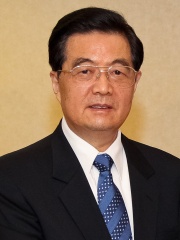
10. Hu Jintao (b. 1942)
With an HPI of 81.29, Hu Jintao is the 10th most famous Chinese Politician. His biography has been translated into 108 different languages.
Hu Jintao (born 21 December 1942) is a Chinese politician who served as the general secretary of the Chinese Communist Party (CCP) from 2002 to 2012, president of China from 2003 to 2013, and chairman of the Central Military Commission from 2004 to 2012. He was a member of the CCP Politburo Standing Committee, China's top decision-making body, from 1992 to 2012, and served as the paramount leader of China from 2002 to 2012. Born in Tai County, Jiangsu, Hu studied engineering at Tsinghua University, joining the Chinese Communist Party (CCP) while in college. First working as a political counselor at Tsinghua, Hu later worked as an engineer in Gansu, later joining the province's Construction Department. He assumed leadership of the Communist Youth League of China (CYLC) branch in Gansu, afterwards joining the CYLC leadership in Beijing, eventually becoming the first secretary of the CYLC. Hu was later appointed as Party Committee secretary for Guizhou province and the Tibet Autonomous Region, where his harsh repression of dissent gained him attention from the highest levels. He moved up to serve as a member of the CCP Central Secretariat and vice president under CCP general secretary Jiang Zemin, becoming Jiang Zemin's presumed successor as paramount leader. Hu was the first leader of the Communist Party from a generation younger than those who participated in the civil war and the founding of the People's Republic. During his term in office, Hu reintroduced state control in some sectors of the economy that were relaxed by the previous administration, and provided support for state-owned enterprises. He oversaw the response to the 2002–2004 SARS outbreak, as well as a significant increase in the healthcare coverage to the Chinese population. He sought to improve socio-economic equality domestically through his political contributions, termed the Scientific Outlook on Development, which aimed to build a "Harmonious Socialist Society" that was prosperous and free of social conflict. Under his leadership, the authorities also cracked down on social disturbances, ethnic minority protests, and dissident figures, which also led to many controversial events such as the unrest in Tibet. He oversaw the passing of the Anti-Secession Law, which laid conditions for authorizing military force for unification with Taiwan, and later saw closer relations with Taiwan, leading to the signing of the trade agreement Economic Cooperation Framework Agreement (ECFA) in 2010. In foreign policy, Hu advocated for China's peaceful rise, pursuing soft power in international relations and a corporate approach to diplomacy. Throughout Hu's tenure, China's influence in Africa, Latin America, and other developing regions increased. At the end of his tenure after ten years in office, Hu won praise for retiring voluntarily from all positions. He was succeeded by Xi Jinping. Hu possessed a modest and reserved leadership style. His tenure was characterized by collective leadership and consensus-based rule. These traits made Hu an enigmatic figure in the public eye. His administration was known for its focus more on technocratic competence and was conservative with political reforms. Along with his colleague Chinese premier Wen Jiabao, Hu presided over nearly a decade of consistent economic growth and development that cemented China as a major world power. Following the death of his predecessor Jiang Zemin, Hu is the only living former paramount leader of the People's Republic of China. He was the last paramount leader of China to be born before the establishment of the PRC.
People
Pantheon has 497 people classified as Chinese politicians born between 2900 BC and 1997. Of these 497, 81 (16.30%) of them are still alive today. The most famous living Chinese politicians include Xi Jinping, Hu Jintao, and Fuxi. The most famous deceased Chinese politicians include Kublai Khan, Qin Shi Huang, and Huang Xianfan. As of April 2024, 15 new Chinese politicians have been added to Pantheon including Chen Min'er, Zhou Qiang, and Hua Chunying.
Living Chinese Politicians
Go to all RankingsXi Jinping
1953 - Present
HPI: 82.81
Hu Jintao
1942 - Present
HPI: 81.29
Fuxi
2900 BC - Present
HPI: 74.10
Wen Jiabao
1942 - Present
HPI: 70.76
Zhu Rongji
1928 - Present
HPI: 67.45
Li Qiang
1959 - Present
HPI: 65.89
Wang Yi
1953 - Present
HPI: 65.46
Bo Xilai
1949 - Present
HPI: 64.94
Wang Qishan
1948 - Present
HPI: 63.80
Han Zheng
1954 - Present
HPI: 63.25
Zhou Yongkang
1942 - Present
HPI: 62.87
Wang Huning
1955 - Present
HPI: 62.64
Deceased Chinese Politicians
Go to all RankingsKublai Khan
1215 - 1294
HPI: 91.15
Qin Shi Huang
258 BC - 210 BC
HPI: 90.99
Huang Xianfan
1899 - 1982
HPI: 89.40
Mao Zedong
1893 - 1976
HPI: 88.70
Puyi
1906 - 1967
HPI: 83.41
Sun Yat-sen
1866 - 1925
HPI: 82.77
Deng Xiaoping
1904 - 1997
HPI: 82.61
Wu Zetian
624 - 705
HPI: 81.68
Empress Dowager Cixi
1835 - 1908
HPI: 80.65
Temür Khan
1265 - 1307
HPI: 79.82
Toghon Temür
1320 - 1370
HPI: 79.46
Qianlong Emperor
1711 - 1799
HPI: 79.27
Newly Added Chinese Politicians (2025)
Go to all RankingsChen Min'er
1960 - Present
HPI: 50.04
Zhou Qiang
1960 - Present
HPI: 47.92
Hua Chunying
1970 - Present
HPI: 46.97
Liu Zhongqing
1985 - Present
HPI: 39.11
Li Qian
1986 - Present
HPI: 38.44
Zhou Yan
1982 - Present
HPI: 37.24
Liu Yin
1981 - Present
HPI: 37.03
Yoon Jae-young
1983 - Present
HPI: 36.70
Bao Yingying
1983 - Present
HPI: 35.52
Yu Dan
1987 - Present
HPI: 35.45
Chen Ling
1987 - Present
HPI: 35.34
Ni Hong
1986 - Present
HPI: 34.74
Overlapping Lives
Which Politicians were alive at the same time? This visualization shows the lifespans of the 25 most globally memorable Politicians since 1700.

